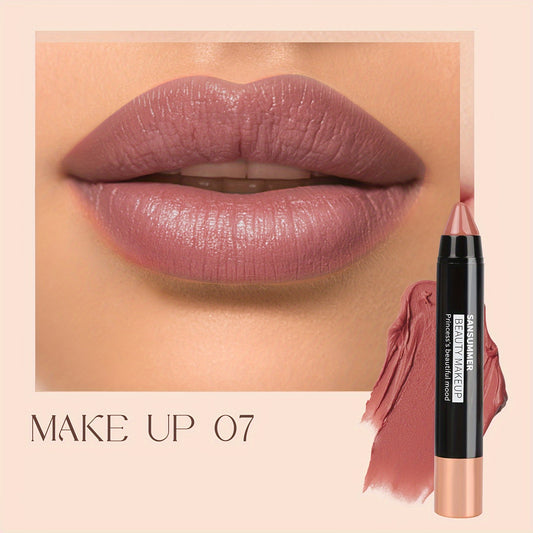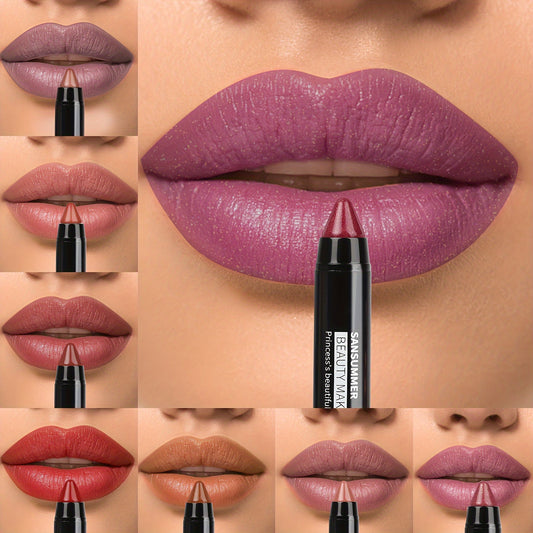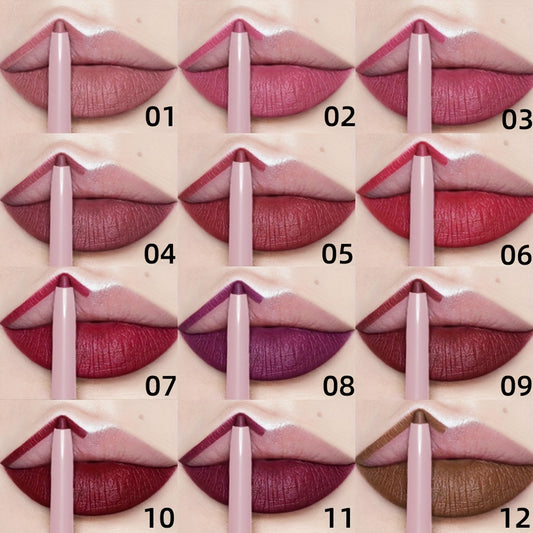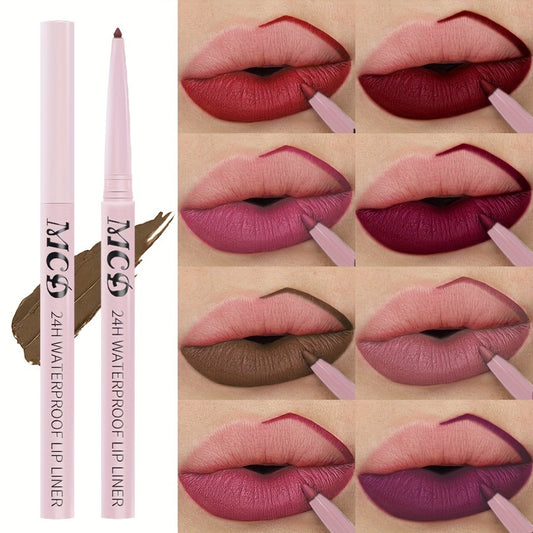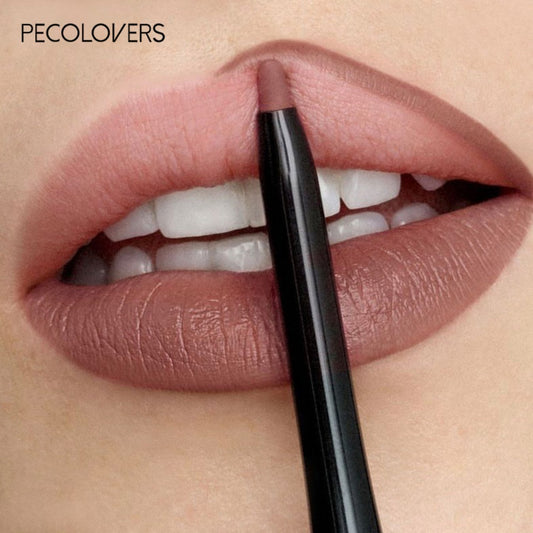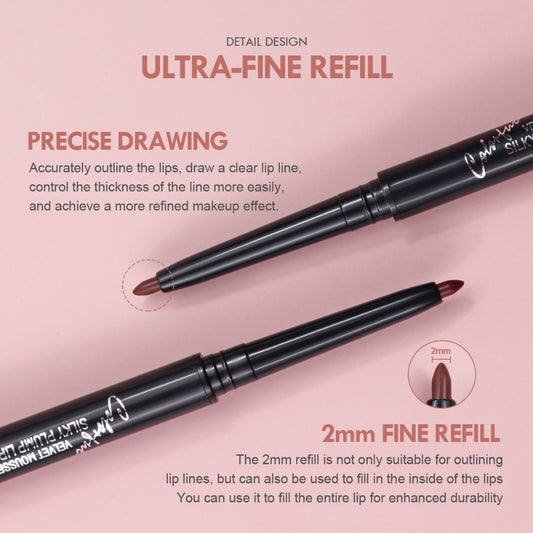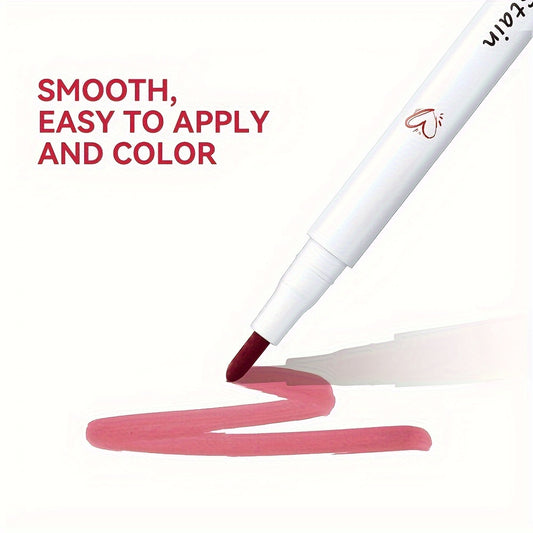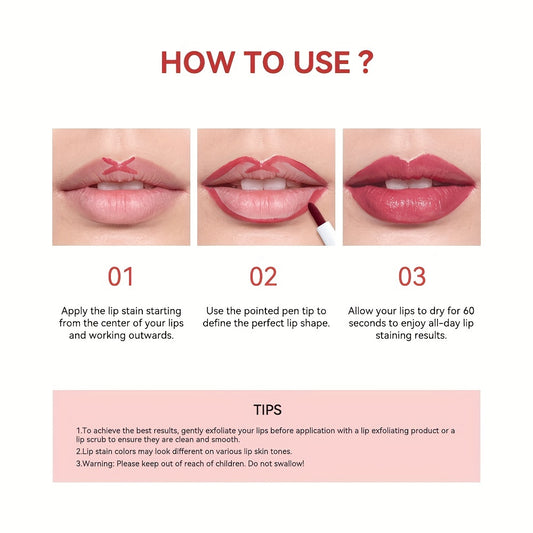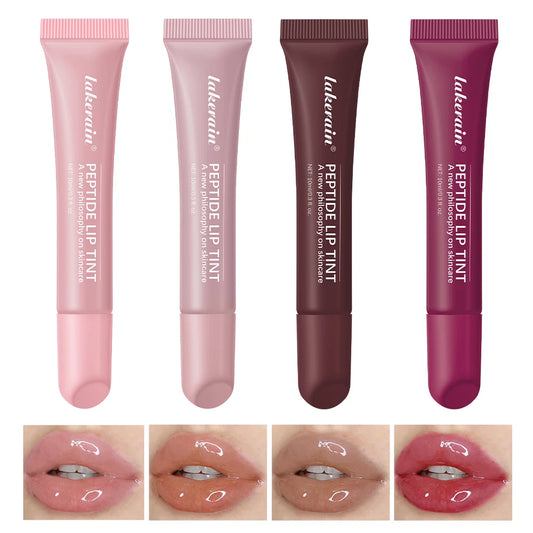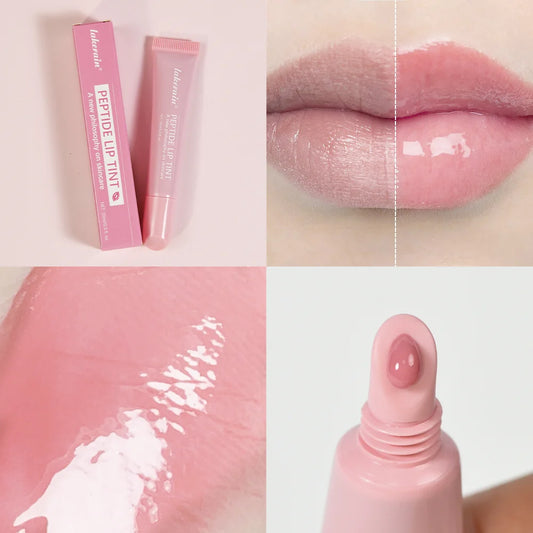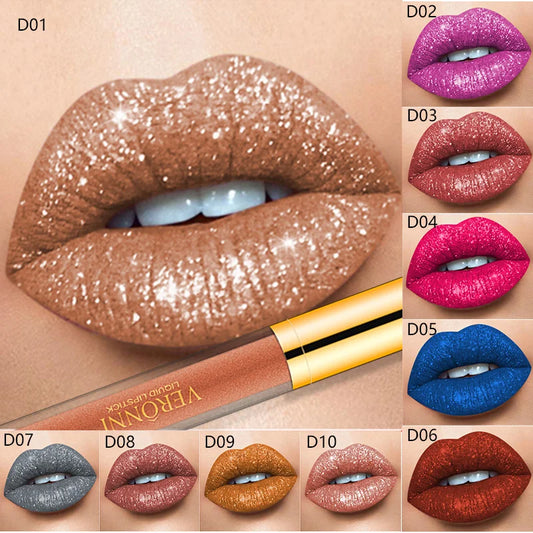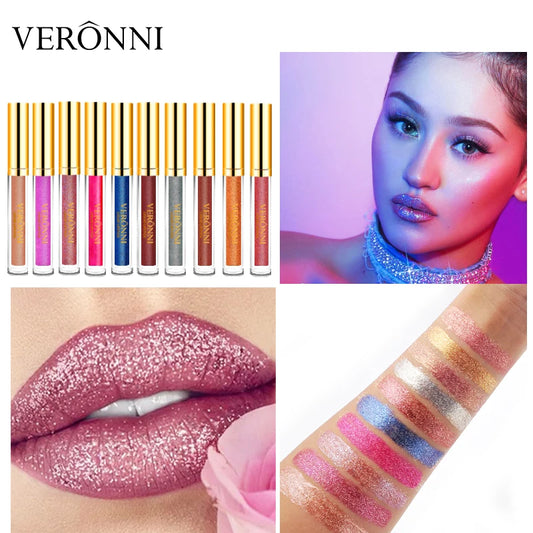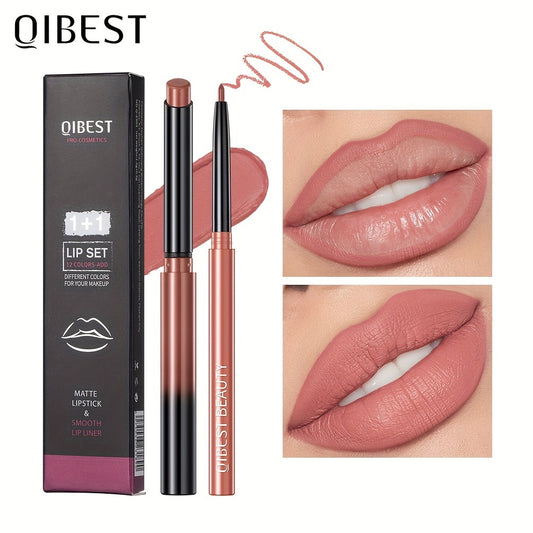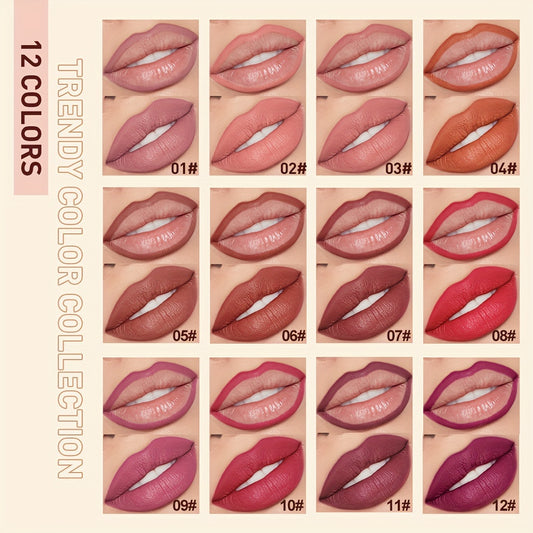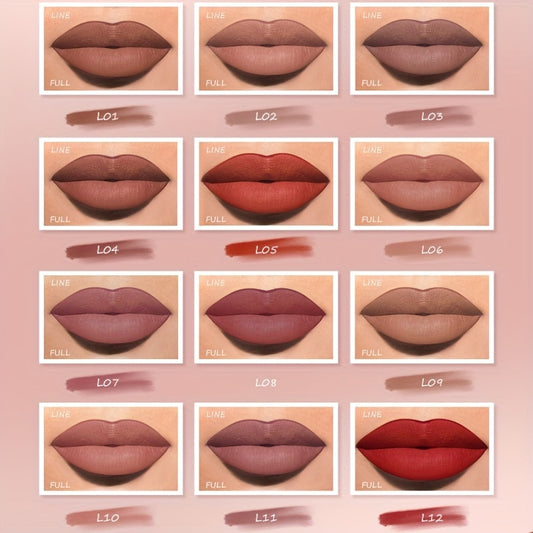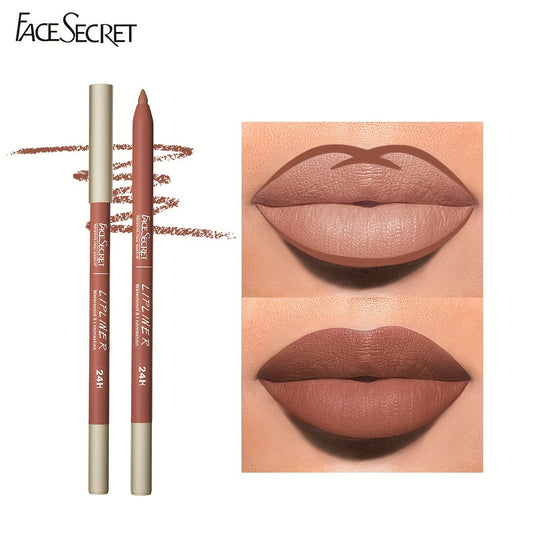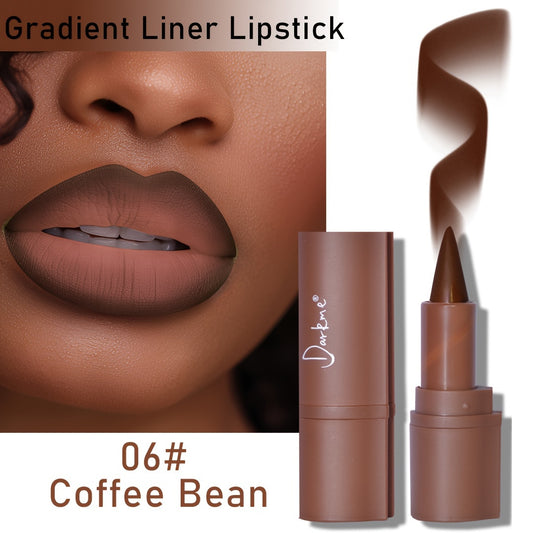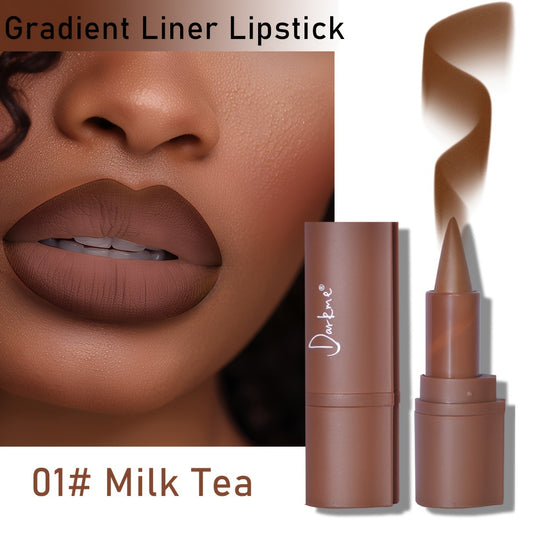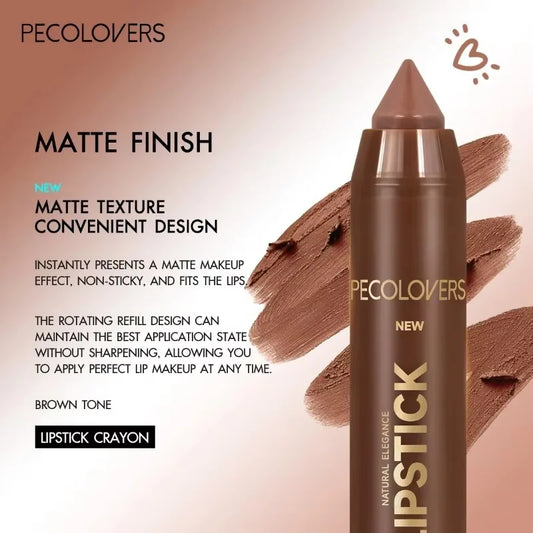The Ultimate Guide to Effective Lip Care for a Perfect Pout
Share
Ever wonder how some people always have super soft, healthy lips? It's not just luck. Getting that perfect pout, the kind that looks great even without lipstick, comes down to a bit of know-how and some regular lip care. Your lips are pretty delicate, so they need a little extra attention to stay smooth and hydrated. This guide is all about giving you the simple steps and tips you need to get your lips looking their best. We'll cover everything from daily routines to the best stuff to put on them, so you can rock a beautiful smile every day.
Key Takeaways
- Hydration, both inside and out, is super important for healthy lips.
- Always use lip products with SPF to protect from sun damage.
- Exfoliate your lips gently once a week to get rid of dead skin.
- Look for lip care products with ingredients like shea butter, beeswax, and vitamin E.
- Good habits, like drinking enough water and avoiding lip licking, really help keep your lips looking good.
Understanding Lip Health Fundamentals
The Delicate Nature of Lip Skin
Okay, so, your lips? They're not like the skin anywhere else on your body. Seriously. They're way more sensitive. Think about it: they don't have oil glands like the rest of your face. That's why they dry out so easily. This lack of natural oils makes them super vulnerable to, well, everything – sun, wind, cold, you name it. It's basically like sending them out into the world without a coat. And because the skin is so thin, you see blood vessels more easily, which is why lips are naturally red. Pretty cool, right? But also, pretty delicate.
Why Lips Need Special Care
Because of that whole no-oil-glands thing, lips can't really protect themselves. They need our help. Think of it like this: you wouldn't leave your plants without water, would you? Same deal. If you don't give your lips some TLC, they're gonna get dry, cracked, and just generally unhappy. And nobody wants that. Plus, taking care of your lips isn't just about looks. It's about keeping them healthy and preventing stuff like infections or sun damage. So, yeah, lip care is important. Here's a few reasons why:
- They lack a stratum corneum (outer protective layer).
- They have fewer melanocytes (pigment-producing cells).
- They are constantly exposed to the elements.
Taking care of your lips is more than just aesthetics; it's about maintaining their health and protecting them from environmental damage. Neglecting them can lead to discomfort and potential health issues.
Signs of Healthy Lips
So, how do you know if your lips are in good shape? Well, healthy lips are usually soft, smooth, and have a nice, even color. No cracks, no flakes, no weird dryness. They should feel comfortable, not tight or itchy. And, of course, no pain! If your lips are any of those things, you're probably doing something right. If not, don't worry! It's never too late to start a good lip care routine. Think of it as a journey to beautiful lips.
Essential Daily Lip Care Practices
Prioritizing Internal Hydration
Staying hydrated isn't just good for your overall health; it's a game-changer for your lips. Think of it this way: if your body is dehydrated, your lips are going to be one of the first places to show it. They'll get dry, chapped, and generally unhappy. Drinking enough water helps keep them plump and moisturized from the inside out.
Here's a quick guide to help you stay on track:
- Carry a reusable water bottle with you.
- Set reminders on your phone to drink water throughout the day.
- Eat water-rich foods like cucumbers and watermelon.
The Importance of SPF Protection
Did you know your lips can get sunburned? It's easy to forget about them when you're slathering on sunscreen, but they're just as vulnerable to UV damage as the rest of your skin. Sunburned lips are not only painful but can also lead to long-term damage. Using sunscreen for lips is a must.
I used to skip lip SPF all the time, thinking it wasn't a big deal. Then I got a nasty sunburn on my lips during a beach trip. Trust me, it's not fun. Now, I never leave home without a lip balm with SPF.
Consistent Lip Balm Application
Lip balm is your best friend. Seriously. Find one you like and keep it close. The key is to apply it regularly, not just when your lips feel dry. Think of it as a preventative measure rather than a reactive one. Reapply after eating, drinking, or any activity that might strip away the balm. Look for balms with moisturizing ingredients like shea butter or beeswax. I always keep a hydrating lip balm in my bag.
Here's a simple schedule I try to follow:
- Apply lip balm in the morning before leaving the house.
- Reapply after lunch.
- Apply again before bed.
Advanced Lip Care Techniques
Gentle Exfoliation for Smoothness
Okay, so you're past the basics. Now it's time to talk exfoliation. I know, I know, it sounds scary for your lips, but trust me, it's a game-changer. Think of it like this: you're getting rid of all the dead skin that's making your lips look dull and feel rough. The key is to be gentle.
Here's a simple DIY lip scrub recipe:
- 1 teaspoon of sugar (brown or white, your call)
- 1/2 teaspoon of honey (for moisture, duh)
- A tiny drop of olive oil (optional, but adds extra smoothness)
Mix it all together, gently rub it on your lips in circular motions for like, a minute, and then rinse it off. Do this once or twice a week, max. You can also buy lip balms with exfoliating properties, but homemade is often just as good and way cheaper.
Nourishing Overnight Treatments
Ever wake up with dry, tight lips? Yeah, me too. That's where overnight treatments come in. It's like giving your lips a mini spa treatment while you sleep. Slather on a thick layer of something super moisturizing before bed, and wake up with soft, plump lips.
Here are some options:
- Honey: Straight up honey. It's a natural humectant, which means it draws moisture to your lips.
- Shea butter: This stuff is amazing. It's super rich and creamy, and it really helps to heal dry, cracked lips. You can find shea butter in many lip products.
- Lip mask: There are tons of lip masks out there that are specifically designed for overnight use. Look for ones with ingredients like hyaluronic acid or ceramides.
I like to put on a thick layer of Aquaphor before bed. It's not the most glamorous, but it works wonders. Seriously, my lips feel like a baby's butt in the morning. Just try not to get it all over your pillow.
Protecting Lips from Environmental Stressors
Okay, so we've talked about exfoliation and overnight treatments, but what about protecting your lips from the stuff that's constantly trying to wreck them? I'm talking about the sun, wind, and cold. These things can really do a number on your lips, leaving them dry, chapped, and even sunburned.
Here's what you need to do:
- Sunscreen: Yes, your lips need sunscreen too! Look for a lip balm with an SPF of at least 30. Reapply it often, especially if you're spending time outdoors. Precancerous lesions are no joke.
- Shielding: When it's cold or windy, cover your mouth with a scarf or your hand. It's a simple way to protect your lips from the elements.
- Humidifier: If you live in a dry climate, consider using a humidifier, especially in your bedroom. It will help to keep your lips (and your skin) hydrated.
Key Ingredients for Optimal Lip Care

Emollient Power of Shea Butter
Shea butter is like that reliable friend you can always count on. It's derived from the nuts of the shea tree and is packed with fatty acids and vitamins, making it a super effective moisturizer. I always look for it in my lip balms because it's so soothing. It creates a smooth, non-greasy feel, which is a big plus. Seriously, a shea butter lip balm is a must-have in your bag.
Protective Barrier of Beeswax
Beeswax is another ingredient I'm always happy to see on a lip balm label. It's known for forming a protective layer on your lips, which helps to lock in moisture and keep out irritants. Think of it as a bodyguard for your pout! Plus, it's a natural ingredient, which is always a win. It gives lip products a nice, even texture too. I've found that beeswax really helps when the weather is harsh.
Healing Properties of Vitamin E
Vitamin E is like the medic of lip care ingredients. It not only conditions your lips but also has antioxidant properties that help repair damaged skin cells. If you're dealing with chapped or dry lips, products with vitamin E can be a total game-changer. It's the ingredient that keeps on giving, helping your lips heal while ensuring they stay moisturized. I always make sure my overnight lip treatments have Vitamin E in them.
I've noticed a big difference in my lip health since I started paying attention to the ingredients in my lip products. It's not just about slapping on any old balm; it's about finding the right ingredients that work for your specific needs. Shea butter, beeswax, and vitamin E are my go-to's for keeping my lips soft, protected, and healthy.
Selecting the Right Lip Products
It's easy to get lost in the sea of lip products out there. From balms to oils to ointments, how do you know what's best for your pout? The key is understanding your lips' specific needs and choosing products with ingredients that address those concerns. Let's break it down.
Choosing Hydrating Lip Balms
Not all lip balms are created equal. Some just sit on the surface, while others really sink in and hydrate. When you're picking a lip balm, look for ingredients that draw moisture to the lips and lock it in. Think of it like this:
- Humectants: These attract moisture. Common ones include hyaluronic acid and glycerin. The PCA Skin Hyaluronic Acid Lip Booster is a great option.
- Emollients: These soften and smooth the skin. Shea butter, cocoa butter, and natural oils are your friends here.
- Occlusives: These create a barrier to prevent moisture loss. Beeswax and castor oil are popular choices. Castor oil also gives a nice shine.
Avoid balms with alcohol, menthol, or artificial fragrances. These can actually dry out your lips, which is the opposite of what you want!
Benefits of Tinted Lip Oils
Want a little color with your hydration? Tinted lip oils are where it's at. They give you a subtle wash of color while nourishing your lips. Plus, they often have a lovely, glossy finish. Glossified Lip Plumper is a good choice for a fuller look.
- Hydration Boost: Lip oils are packed with moisturizing ingredients like jojoba oil and coconut oil.
- Subtle Color: They enhance your natural lip color without being too heavy.
- Glossy Finish: They give your lips a healthy, plump look.
Repairing Cracked Lips with Ointments
When your lips are seriously cracked and dry, you need something more intense than a regular balm. That's where ointments come in. These are usually thicker and contain ingredients that help heal and protect the skin. Aquaphor Healing Ointment is a classic for a reason. Vitamin E is also great for healing damaged skin cells.
- Intense Hydration: Ointments provide a thick layer of moisture to soothe and heal cracked lips.
- Protective Barrier: They create a barrier to prevent further moisture loss and protect against irritants.
- Healing Properties: Ingredients like petrolatum and lanolin help repair damaged skin.
Here's a quick guide:
| Lip Condition | Recommended Product Type | Key Ingredients | Frequency of Use |
|---|---|---|---|
| Daily Hydration | Lip Balm | Shea butter, cocoa butter, beeswax, coconut oil | As needed |
| Subtle Color & Shine | Tinted Lip Oil | Jojoba oil, vitamin E, natural pigments | As needed |
| Severely Cracked Lips | Ointment | Petrolatum, lanolin, vitamin E | Several times daily |
Lifestyle Habits for Beautiful Lips
Impact of Diet on Lip Health
Okay, so you're probably thinking, "Diet? For my lips?" Yep! What you eat seriously affects your lips. Think of it this way: healthy body, healthy lips. A diet rich in vitamins and omega-3s is a game-changer.
Here's a quick rundown:
- Omega-3 Fatty Acids: Found in fish (salmon, mackerel), flaxseeds, and walnuts. They help keep your lips moisturized from the inside out.
- Vitamins: Especially A, C, and E. Load up on berries, citrus fruits, leafy greens, and sweet potatoes.
- Hydration: Water is your best friend. Dehydration? Hello, chapped lips!
Eating well isn't just about weight management; it's about nourishing every part of you, including your lips. A balanced diet can boost collagen production and keep your lips looking plump and healthy.
Avoiding Harmful Lip Habits
We all have those little habits we don't even realize we're doing. But some of them can wreak havoc on your lips. Let's break down the big no-nos:
- Lip Licking: Saliva evaporates quickly, leaving your lips drier than before. It's a vicious cycle!
- Biting or Picking: This can cause irritation, inflammation, and even infection. Hands off!
- Smoking: Seriously bad news. It accelerates collagen loss and can cause discoloration. Plus, it's terrible for your overall health. Quitting smoking can help restore the natural color and texture of your lips.
- Using Harsh Products: Some lipsticks and lip products contain ingredients that can dry out your lips. Always check the label and opt for moisturizing formulas. Consider using tinted lip oils for a natural look.
Maintaining Indoor Humidity Levels
Dry air is a lip's worst enemy. Especially during winter or if you live in a dry climate. Here's how to combat it:
- Humidifier: Invest in a good humidifier for your home, especially for your bedroom. It adds moisture back into the air, preventing your lips from drying out overnight.
- Plants: Houseplants can also help increase humidity levels. Plus, they look nice!
- Avoid Overheating: Cranked-up heaters can dry out the air even more. Try to keep the temperature moderate.
| Humidity Level | Impact on Lips | Recommendation |
|---|---|---|
| Low | Dry, cracked | Use a humidifier, apply lip balm frequently |
| Moderate | Comfortable | Maintain current habits, hydrate regularly |
| High | Less dryness | Ensure proper ventilation to avoid mold/mildew |
By making these lifestyle adjustments, you'll be well on your way to achieving a perfect pout. Remember, consistency is key! Incorporate these habits into your daily routine, and your lips will thank you. Don't forget to use hydrating lip balms to keep your lips moisturized.
Want soft, pretty lips? It's easier than you think! Simple daily habits can make a big difference. Learn how to keep your lips looking their best by visiting our website for more tips and tricks.
Conclusion
So, getting nice lips doesn't mean you need to spend a ton of money. Just be consistent and pay attention to the little things. If you follow these tips and use good products, you can keep your lips soft and healthy. This will make your natural beauty shine. Remember, drinking enough water is super important, and don't forget that SPF lip balm. Also, scrubbing your lips gently once in a while helps get rid of dry bits. If you do these simple things, and maybe use a good lip plumper, you'll have that perfect pout in no time.
Frequently Asked Questions
How can I make my lips beautiful?
To get great-looking lips, drink plenty of water and use lip balms with SPF to keep them moist. Gently rub your lips once a week to remove dead skin, and try not to lick or bite them.
What is the best care for lips?
The best lip care involves drinking enough water, using SPF lip balm every day, gently rubbing your lips once a week, avoiding harsh products, and putting on a rich lip balm before bed.
What lip products enhance natural beauty?
Products like tinted lip oils or balms made with natural stuff like shea butter or beeswax can make your lips look naturally pretty. They add a little color and keep your lips moist.
How often should I rub my lips?
You should gently rub your lips once or twice a week. Use soft scrubs made from sugar or natural oils to avoid hurting them.
Can what I eat make my lips healthier?
Yes! Eating foods rich in good fats (like those in fish) and vitamins (from fruits like berries) can help your body make more collagen and keep your lips naturally moist.
How can I maintain moisture levels in my home for lip health?
To keep your lips from getting dry in your home, use a humidifier to add moisture to the air. This is especially helpful in dry or cold weather.

